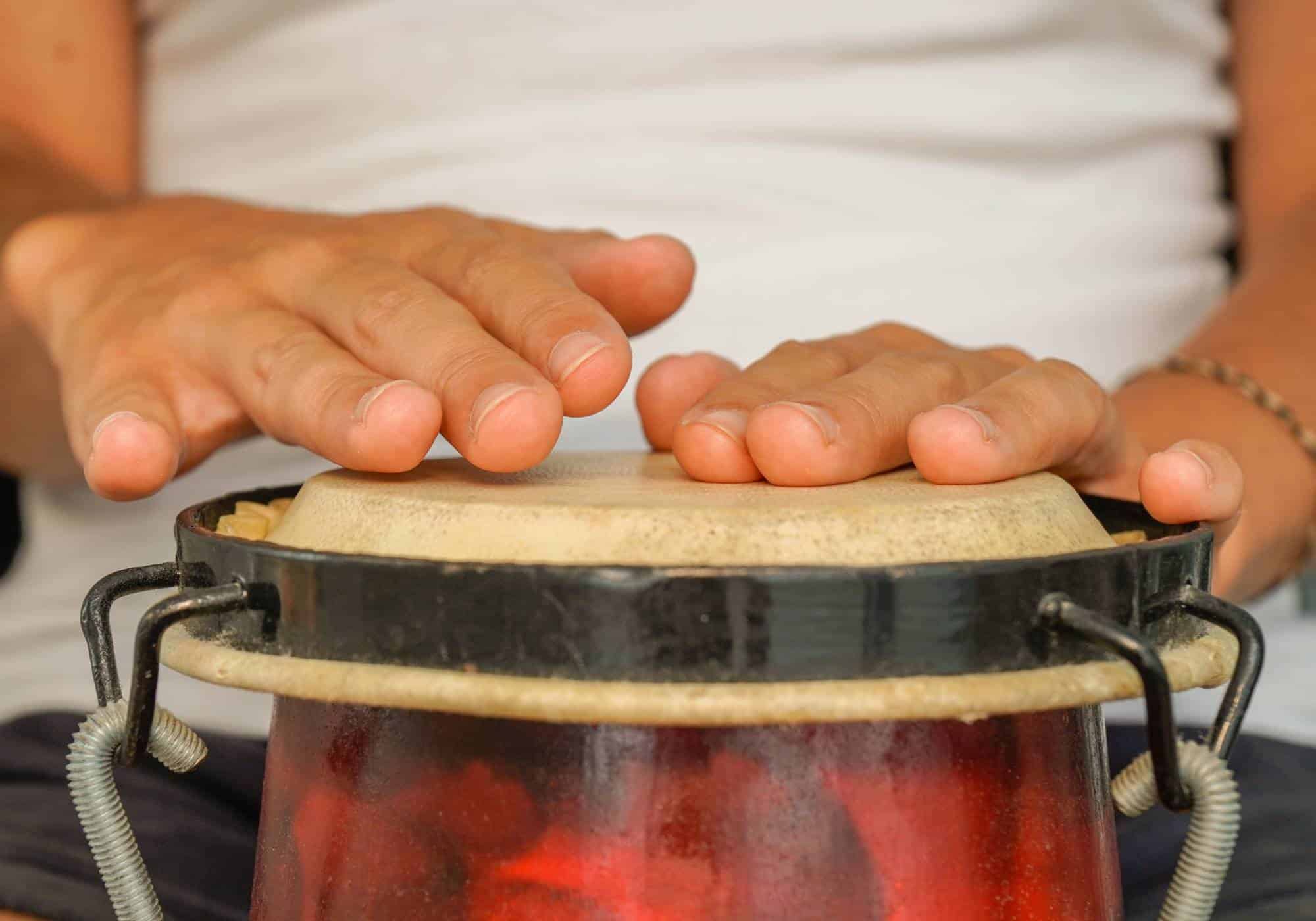Music therapy stands as a compelling form of experiential therapy, utilizing the transformative power of music to foster well-being across various domains. In Atlanta, GA, trained music therapists design personalized sessions that require no prior musical skills, making this therapeutic approach accessible to everyone, regardless of age or background.
What is Music Therapy?
Defined by the American Music Therapy Association, music therapy is a clinical and evidence-based practice where music is used strategically to address therapeutic goals. This practice goes beyond simple music enjoyment; it is a structured intervention where a certified music therapist employs music to facilitate physical, emotional, cognitive, and social healing.
The process begins with a comprehensive assessment by the therapist to understand the individual’s needs and objectives. The therapist then plans a series of music-based activities tailored to these goals. Activities might include singing familiar songs, engaging in music improvisation, composing music, or participating in rhythm-based exercises. Each is designed to address specific therapeutic outcomes such as stress reduction, mood enhancement, emotional expression, or cognitive improvement.
Music therapy offers a dynamic avenue for expression and communication, particularly valuable for individuals who find traditional expressive means challenging. It involves active participation in a therapeutic context, guided by a professional, to work towards holistic personal growth and healing.
From reducing anxiety to aiding in physical rehabilitation and improving emotional and social skills, music therapy provides a versatile and effective therapeutic option. It not only soothes but also stimulates and empowers individuals, enhancing their overall quality of life through structured musical engagement.
Whether it’s through creating, listening, or interacting with music, this therapy modality offers a profound way to reach personal wellness goals, proving to be an essential part of therapeutic practices that support diverse needs and foster significant life improvements.
Types of Music Therapy
Music therapy offers a flexible approach to healing, accommodating both hands-on music creation and receptive experiences where individuals engage with music. Therapists often blend these methods to tailor the therapy to individual needs.
Exploring Various Music Therapy Techniques:
- Analytical Music Therapy: This technique involves an improvised musical interaction between the therapist and client, using instruments or voices to express and explore unconscious thoughts, which are then discussed in therapy sessions.
- Benenzon Music Therapy: This method integrates psychoanalytical theory with music creation, focusing on identifying your unique “musical sound identity”—sounds that reflect your internal emotional state.
- Cognitive Behavioral Music Therapy (CBMT): CBMT combines cognitive behavioral techniques with music activities, such as listening, dancing, singing, or playing instruments, to modify behaviors and reinforce positive actions.
- Community Music Therapy: Focused on social change and community involvement, this approach uses music to encourage community members to engage and interact, fostering group cohesion and collective empowerment.
- Nordoff-Robbins Music Therapy: Also known as creative music therapy, this involves making music with a therapist in an improvisational manner to encourage personal expression and interaction.
- The Bonny Method of Guided Imagery and Music (GIM): This method uses classical music to stimulate imagination and evoke imagery, emotions, and memories, which are then discussed in the therapeutic setting.
- Vocal Psychotherapy: Utilizing vocal expressions, breath work, and ambient sounds, this therapy delves into deep emotional explorations to enhance personal insight and emotional healing.
What Music Therapy Can Help With
Music therapy in Atlanta provides significant benefits for a wide range of conditions and challenges:
- Neurological and Cognitive Disorders: Effective for individuals with Alzheimer’s, autism, and traumatic brain injuries, music therapy helps enhance memory, improve communication skills, and aid in the recovery of cognitive functions.
- Emotional and Psychological Health: Individuals facing anxiety, stress, depression, PTSD, and other emotional imbalances can find relief and emotional regulation through tailored music therapy interventions.
- Physical Health Challenges: Music therapy assists in the management of chronic pain, heart health issues, respiratory conditions, and post-surgical recovery, improving physical symptoms and overall well-being.
- Developmental and Behavioral Improvements: Particularly beneficial for children and adolescents, music therapy supports identity formation, enhances communication, regulates emotions, and facilitates healing from trauma.
- Substance Use Disorders: For those battling substance use, music therapy can offer alternative ways of coping, reducing reliance on substances and aiding in rehabilitation.
Music therapy has also shown promise in treating insomnia, OCD, schizophrenia, stroke recovery, and other conditions, making it a versatile tool in medical and therapeutic settings.
For those exploring options for mental health and physical recovery, music therapy presents a holistic and engaging treatment alternative. At the Hooked on Hope Mental Health, we provide a comprehensive range of music therapy services designed to cater to the diverse needs of our community. Contact us today at 470-287-1927 or via our online contact form to discover how music therapy can support your journey to health and wellness.

How Does Music Therapy Work?
Music therapy utilizes the innate qualities of music to prompt positive physiological responses in the body. For instance, in a guided meditation session, participants may synchronize their breathing with soothing melodies, which can lead to decreased blood pressure and muscle relaxation. These physiological changes are fundamental in enhancing mental well-being and equipping individuals with better mechanisms to handle stress or pain.
Furthermore, music therapy offers substantial support for emotional and cognitive challenges. During sessions, individuals might listen to specific pieces of music and explore their emotional responses, which is particularly beneficial for those who struggle with attention or expressing their feelings. This therapeutic practice helps participants develop skills to better understand and articulate their emotional states.
Music Therapy for Mental Health Treatment
Music therapy serves as an invaluable conduit between the patient and therapist, facilitating a deeper understanding and connection.
The process typically involves:
- Patient Assessment: Skilled music therapists conduct comprehensive evaluations of a client’s emotional, health, cognitive, communicative, and social capabilities through their responses to music.
- Goal Setting: Following the assessment, tailored therapeutic goals are established which may focus on enhancing emotional expression, improving cognitive functions, or promoting social interaction.
- Musical Engagement: Individuals engage in various music activities such as singing, playing instruments, or composing, which directly relate to their therapeutic objectives.
- Regular Monitoring: Therapists continuously monitor progress, adjusting the therapeutic approach as necessary to optimize outcomes.
Music’s profound impact on the brain—particularly areas governing emotion, cognition, and movement—is well documented and utilized in therapy. The historical roots of music therapy trace back to its use during the World Wars, where musicians played for wounded soldiers, highlighting its restorative potential. This legacy has paved the way for music therapy’s integration into contemporary mental health practices, offering relief and recovery for conditions such as depression and anxiety.
Is Music Therapy Effective?
Empirical evidence and clinical testimonials affirm the transformative effects of music therapy in mental health care.
Research highlights its efficacy in:
- Enhancing mood and alleviating symptoms of anxiety and depression.
- Improving cognitive functions, including focus and memory retention.
- Strengthening social connections and enhancing interpersonal skills.
- Providing effective strategies for stress management and emotional regulation.
- Offering significant relief for individuals suffering from PTSD and other trauma-related issues.
The effectiveness of music therapy lies in its ability to engage both hemispheres of the brain, fostering neuroplasticity—the brain’s ability to reorganize itself by forming new neural connections. This dynamic aspect of music therapy makes it a powerful tool in therapeutic settings, enabling profound emotional and cognitive benefits for individuals navigating the complexities of mental health challenges.
Benefits of Music Therapy
Music therapy offers a tailored therapeutic approach that resonates across all ages and a wide spectrum of health challenges. Its impact extends far beyond the basic elements of music, such as melody and rhythm, touching deeply on our brain functions and emotional well-being.
Here are the profound benefits music therapy brings:
- Neurological Engagement: Music activates areas of the brain involved in emotions, memory, decision-making, and even involuntary actions.
- Social Connection for Older Adults: Group music therapy sessions provide a communal space that fosters interaction, enhancing social bonds among the elderly.
- Physiological Benefits: It helps reduce heart rate and blood pressure, relax muscles, and stimulate the release of endorphins, enhancing physical comfort.
- Developmental Aid for Youth: For children facing developmental or learning challenges, music therapy supports the development of communication skills and fine motor coordination.
Expanding on these benefits, music therapy acts as a therapeutic conduit, facilitating:
- Relaxation and Calm: It induces states of tranquility and relaxation, easing stress and reducing symptoms of anxiety or depression.
- Emotional and Social Enhancement: It improves emotional expression and social skills, building confidence and self-understanding.
- Cognitive and Emotional Empowerment: Participants may experience enhanced problem-solving capabilities and increased self-confidence.
- Physical Health Improvements: It can diminish the perception of pain and bolster motor function, contributing to an overall enhanced quality of life.
Music therapy is customized to meet individual needs, offering a scientifically supported path to improved mental and emotional health. A qualified music therapist will ensure that each session is aligned perfectly with your therapeutic needs, making each musical interaction meaningful and healing.

What are the Risks of Music Therapy?
Although music therapy is a predominantly safe and low-risk treatment, it’s important to recognize that music can trigger strong emotional responses, including memories that may be powerful and unexpected.
Before beginning therapy, music therapists typically conduct a thorough initial discussion to understand your background, any traumatic experiences, and elements that might affect your reaction to certain types of music or lyrics. Ensuring your comfort is crucial; by sharing your experiences and preferences, you can aid your therapist in creating a session that is both beneficial and safe, fostering a healing environment that is attuned to your needs.
What Happens During a Music Therapy Session?
A music therapy session is an immersive experience where sound and emotions coalesce in a therapeutic context.
Guided by a professional music therapist, activities might include:
- Creation and Composition: You might collaborate to create melodies, write lyrics, or produce harmonious compositions.
- Voice Power: Engaging in vocal expression, whether singing familiar tunes or exploring new ones.
- Instrumental Exploration: Playing instruments like guitars, drums, or pianos to express emotions or build skills.
- Improvisation: Engaging in spontaneous musical expression, which can include instrumental and vocal improvisation reflective of your feelings.
- Rhythmic Movement: Physically responding to music through movements as simple as tapping or as involved as dancing.
- Focused Listening: Participating in deep listening exercises where you absorb and then reflect on music played by the therapist.
- Lyric Analysis: Discussing and dissecting song lyrics to unearth personal relevance or emotional connections.
Music therapy sessions in Atlanta, GA are meticulously tailored to align with your emotional and therapeutic needs, ensuring that each session contributes to your journey of healing. It’s not merely about music—it’s a holistic approach to wellness.
Start Your Music Therapy in Atlanta, GA
Explore the transformative impact of music therapy on mental health at our Atlanta mental health center. Music therapy provides a unique avenue for emotional expression and psychological healing. Tailored specifically to your needs, our outpatient treatment programs utilize the therapeutic power of music to enhance well-being and support recovery. Whether you’re dealing with anxiety, depression, or other mental health conditions, our experienced therapists are here to help. We invite you to reach out to us at 470-287-1927 or via our online contact form to learn more about our services or to discuss insurance options. Embrace the journey to better mental health with our specialized music therapy sessions

